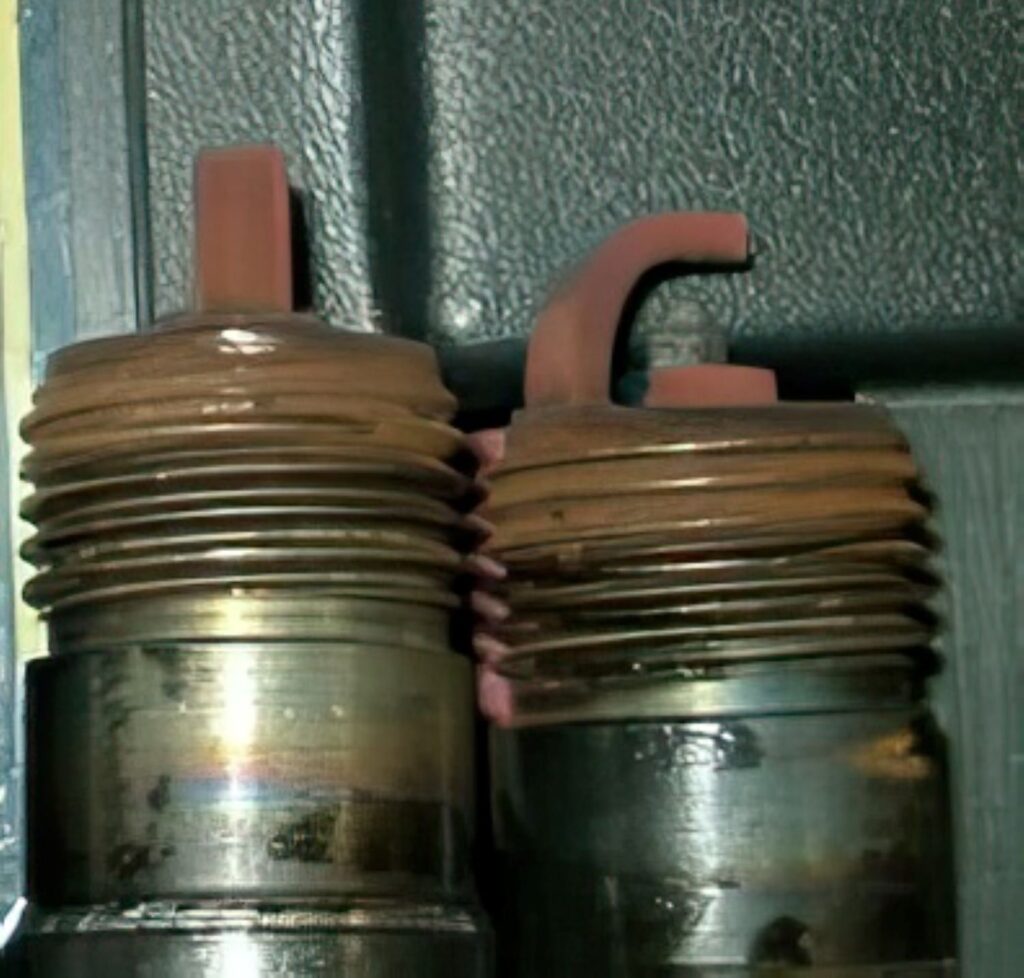It happens to the best of us. You drive a car designed to run on regular gasoline. On the way to your latest destination, you notice the reading in the fuel gauge that warns the gas tank is low. Since you don’t want the risk of running on fumes, you pull into the first gas station you come across. As you finish filling the tank, you look at the gas pump and realize it’s not the one for regular fuel. You’ve accidentally put premium-grade gasoline in the fuel tank.
So what happens if you put premium gas in a regular gas car? Will running on high-performance fuel cause issues with performance or inflict damage on critical parts of the fuel system and engine?

Will Premium Gas Hurt My Car?
In a word: No. Accidentally putting premium gas just once or twice in a car designed to run on regular fuel will not harm your car’s parts and components.
However, note that there have been technical service bulletins from Ford and Chrysler warning against frequently using higher octane fuels in vehicles that are built to use 87 octane fuel, because premium fuel burns slower and tends to leave unburned fuel deposits on the piston crown and cylinder head that will eventually turn into carbon.
This carbon, when it becomes heavy enough to increase compression, can cause detonation. Most people believe premium fuel burns faster but it actually burns slower than regular fuel.
Thus, low octane fuel is more susceptible to spontaneous combustion than high octane fuel. When carbon begins to accumulate in the combustion chamber for other reasons (like oil consumption) leading to detonation or spark knock, using premium fuel reduces the knocking until the premium fuel begins to add more carbon to what’s already there.
What’s the Difference Between Premium Gas And Regular Gas?
Now that you’re not worried about premium gas ruining your car’s engine, you might wonder: What is premium gas? The answer involves the fuel’s octane rating.
The octane rating indicates the effectiveness of the antiknock agent present in gasoline. The agent is an additive that reduces the risk of engine knocking, a problem that occurs when the fuel-air mixture combusts at the wrong time. Since combustion must happen inside the cylinder at precisely the right moment, unplanned ignition can disrupt the engine’s performance or even damage vital components.
To reduce the likelihood of engine knocking, the antiknock agent increases the temperature and pressure that the fuel needs to ignite. This makes it harder for the fuel to combust without the spark produced by the spark plug.

Gasoline has three grades according to their octane rating. Regular gas has the lowest octane number–it usually has a rating of 87. Of the three grades, regular fuel burns the fastest.
Next is mid-grade fuel. It occupies the middle ground with an octane rating of 89 to 90.
Last but not least, there is premium gasoline. It has the highest octane rating, with octane numbers ranging between 91 and 94. Premium gas burns the slowest.
What Happens When You Put Regular Gas In A Premium Car?
If putting premium gasoline in a regular car isn’t dangerous, what about the opposite? What happens if you accidentally use regular gas to refuel a luxury vehicle that requires premium fuel?
It depends on the vehicle. Older luxury cars that lack an engine control unit (ECU) will likely experience knocking, but they also might not. Their higher-performance engines require premium fuel to produce power smoothly and efficiently, especially if they have a turbocharger or tight tolerances. If they run on low-octane gas, they will develop engine knocking.
Vehicles with electronic fuel injection have had knock sensors since the late 1980s so that the ECM/PCM can reduce the risk of engine knocking by adjusting the timing and performance of various engine parts to accommodate the lower-octane fuel. However, this can wear out the engine faster. COP coil-equipped vehicles can adjust the ignition timing on just one cylinder if it’s the only one showing detonation.
You don’t have to drain your luxury car’s fuel tank to fix this error. If you only put a small amount of regular gas, you can add more premium gas to balance it out.
For those who accidentally put in a large amount of regular gas, try pouring octane booster into the fuel tank. The fuel additive should bump up the octane rating, making it safer to use.

What Happens When You Put Diesel In A Gas Engine?
It depends on how much diesel you put in the tank. If you just put a small amount of diesel in the fuel tank (like 2 gallons in a 20 gallon tank), it’ll cause the vehicle to be hard to start. If you can get it to start, it’ll stumble and stall the way some 87 octane vehicles run when 93 Octane is used. The diesel will also cause a bit of exhaust smoke, but after the vehicle warms up, it may run okay.
Having said that, you should avoid mixing diesel and gasoline at all costs. They are very different fuel types that will severely affect each other.
The higher density of diesel will make it sink to the gas tank’s bottom. Diesel can contaminate the fuel sent to the cylinder or intake manifold. Deposits of incompletely burned diesel will accumulate on parts like pistons, spark plugs, and valves.
Severe diesel contamination can hydro-lock the affected cylinder. It can develop serious issues like blowing its head gasket or fractures in its cylinder head.
If diesel seeps past the piston rings and enters the oil crankcase, it can reduce the engine lubricant’s effectiveness. And if the contaminant reaches the exhaust system, it can start a fire in the catalytic converter.
If you accidentally put a large amount of diesel in your gas car, you’ll find that it won’t even run when the diesel makes it through the fuel system to the engine (usually in 30 seconds). In that case, drain the fuel tank ASAP.
What Happens If You Put Gas In A Diesel Engine?
Gasoline and diesel engines don’t mix well, either. Gas changes the flash point of diesel, making the latter more likely to combust prematurely and it can damage the engine. But different diesel engines will respond differently depending on what kind of fuel injection system the engine has. Some electronic diesels will run like the exhaust is clogged and others will rattle and make lots of noise.
Different diesel engines will respond differently depending on what kind of fuel injection system the engine has. Some electronic diesels will run like the exhaust is clogged and others will rattle and make lots of noise.
–Richard McCuistian, ASE Certified Master Automobile Technician
Gas can also make the fuel pump and injectors fail prematurely. Diesel is an oil that provides lubrication for various fuel delivery parts. In contrast, gasoline is a solvent. It does not have any lubricating properties. High levels of gas contamination will cause the unlubricated pump and injectors to heat up and wear out faster.
Diesel engines cannot burn gasoline completely. The partially combusted gas will become black smoke in the exhaust. Furthermore, the ECU will adjust the fuel-air mixture to improve combustion, only to end up reducing performance and power. And if you keep driving your car with gas-contaminated fuel, it can damage the sensors that keep track of the engine and exhaust.
If you accidentally put gasoline in your diesel car’s fuel tank, drain it immediately.
In conclusion, mixing premium and regular gasoline won’t damage your car in the short run, although it’s not recommended to ignore the problem. It’s diesel and gas that you don’t want to mix.
Any information provided on this Website is for informational purposes only and is not intended to replace consultation with a professional mechanic. The accuracy and timeliness of the information may change from the time of publication.



















